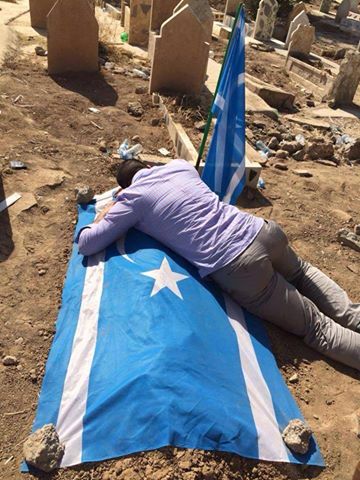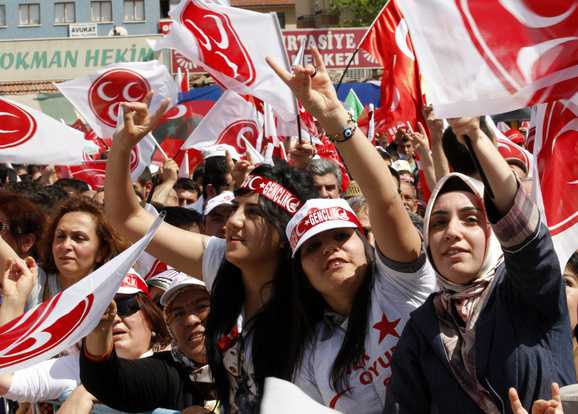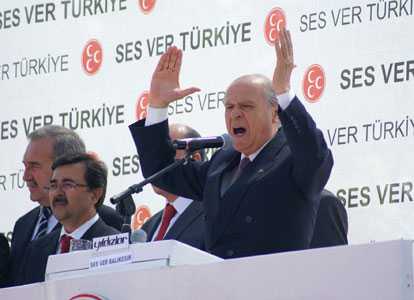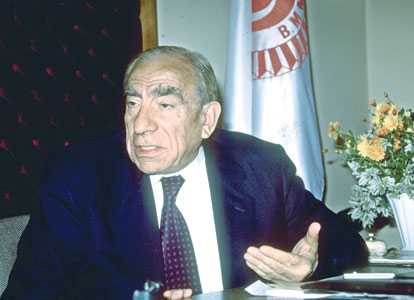A massacre against the Türkmen by this terrorist organization ISIL in Emirli is imminent
Sadly the Kurdish policy/regime toward the Türkmen people is no different from that of the Arabisation policy that was carried out against the Türkmen during Saddam Hussein’s reign.
Following the fall of Saddam Hussein’s government in 2003 and the control of Northern Iraq by the Kurdish Regional Government, the Iraqi Türkmen’s situation has deteriorated dramatically. At that time the Türkmen expected to see justice, equality and human rights but tragically the reverse has been happening. The lands of the Türkmen people have been confiscated and at times destroyed; many Türkmen have been kidnapped, arrested and assassinated. The Türkmen people have been subjected to tremendous pressure from the Kurdish party militias, to disregard their Türkmen identity and they are been forced to blend Kurdish society.
The current disregard of the Türkmen people’s situation is unacceptable in Türkmeneli. The Türkmen people are again been subjected to a most brutal campaign by a terrorist Islamic State in Iraq, the Levant (ISIL) militants, thousands of Türkmen were forced to flee the Türkmen District of Telafer, when jihadists overran the area.
The Türkmen people in the sub-district of Taze Khormatu, Tuz Khormatu and specifically the sub_district of Emirli has been under siege by the terrorist organization ISIL for the last two months. Their water, electricity, medical and food supply has been cut off and they have been living in horrific conditions. A massacre against the Türkmen by this terrorist organization ISIL in Emirli is imminent and tragically avoidable.
When thousands of the Yazidis religious minority were forced to flee Sinjar as the jihadists overran their area, this prompted an international aid operation and helped to trigger the US air strikes.
Türkmens are questioning why Britain, Germany, France, Italy, Canada, and the Czech Republic do not show this same solidarity/urgency towards the Iraqi Türkmen people. As over 100,000 Türkmen people have sought refuge as thousands of Türkmen are executed by the terrorist Islamic State (IS) militants.
Türkmen are also questioning why Germany, France, the Czech Republic, Italy, Canada, and Britain are not showing the same solidarity toward the Iraqi Türkmen in Emirli, who have been under siege for the past two months? Türkmens believe that the humanitarian aid should be distributed equally and fairly to all the Iraqi people who are fleeing Islamic militants in Northern Iraq.
The Türkmen and Christian people are left defenceless, after the occupation of the city of Mosul by the terrorist Islamic State militants and the retreat of the Iraqi army from Mosul and Kerkuk. The Kurdish armed forces, instead of fighting and stopping the State militants from occupying Türkmen villages around the city of Kerkuk, have used the sectarian chaos in Iraq to expand their autonomous territory to include Kerkuk.
Kerkuk sits on vast oil deposits, that could make the Kurdish region an independent state that many dream of in Iraq’s mountainous north and beyond, more viable. Türkmen question why Germany, France, the Czech Republic, Italy, Canada, and Britain did not stop the Kurdish Peshmerga from occupying the Türkmen city of Kerkuk without question their objective?
While the Islamic State militants have swept across northern Iraq, pushing back Kurdish regional forces, threatening the Kurdish regional Capital of Erbil and driving tens of thousands of Christians and members of the Yazidis religious minority from their homes, Germany, France, Czechs Republic and Britain have shown great empathy towards the Kurdish people.
Funnelling arms to the Kurdish Peshmerga forces by Britain, the United States and some European countries can start to change the dynamics in the region. The U.S. and EU’s provision of arms support for the Kurds is a good and positive step against the terrorist organization ISIL. However, this help should not only be given to the Kurdish people, the Türkmen people should also be given arms support. If the support is only limited to the Kurds, it could be an indication that there are other plans/incentives behind the decision of establishing a Kurdish state.
The U.S. and EU’s stance on supporting the Kurds could be motivated by plans to divide Iraq into three parts that consist of a Shiite region in the south, a strengthened Kurdish region in the north and a Sunni region in the central Iraq. This action would be totally rejected by the Türkmen people and civil war will be imminent if this plan is implemented by the U.S. and EU’s countries. In the view of many Türkmen, an independent Kurdish state would further destabilize the region and create new tensions, possibly also within the states neighbouring Iraq.
In the view of many Türkmen, ignoring the plight of the Türkmen could be seen to be part of a plan for creating a special region for Christians and Yazidis on the Nineveh plane. The Türkmen would be the biggest losers from the implementation of such a plan. The Türkmen have suffered a lot during and after the fall of the Saddam Hussein regime. Iraqi Türkmen, the third largest ethnic group affected by the violence in Iraq, should also be equally armed by Britain to fight the Islamic State in Iraq and the Levant.
The Türkmen people totally disapprove of sending weapons only to the Kurdish Peshmerga as these weapons could later be used by the Kurdish Peshmerga, to suppress the other ethnic groups in Northern Iraq. The Türkmen, Christian and Yazidis were betrayed by the Kurdish Peshmerga when they retreated from the Türkmen district of Telafer and sub- district of Beshir, Kusteppa, Biravchi, Makhmur and Sinjar.
The Kurdish Peshmerga left the Türkmen, Christian and Yazidis under the mercy of the terrorist organization ISIL. The Kurdish Peshmerga is fighting to protect their own state, not for the Iraqi people as is believed. The Türkmen are worried about the formation of an independent Kurdish state, as this would risk further destabilizing the region.
The Türkmen people of Iraq are extremely anxious to see the US and the West take action against the terrorist organization ISIL. However, the US, England, France, Italy, Canada, and Germany should show the same equality and empathy towards the Türkmen people. Iraqi Türkmen people are asking for arms/help/support from the West, asking for equal treatment to fight the terrorist organization ISIL.
Mofak Salman Kerkuklu
Türkmen Liberation Front





